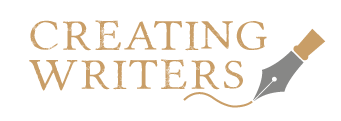Charlie Laidlaw is an author and tutor at Creating Writers
Readers engage with books because we’re enthralled with the plot or the characters.
We want to keep turning pages because we want to know what happens next. We like the story and the characters that populate it.
But for new authors, engagement is also about knowing your audience. Is your book aimed at male of female readers? If so, of what age?
That can be particularly important if you’re writing for children, as children’s reading ability changes so quickly.
Think back to your favourite books and why they appealed to you. Understand the attraction they had for you and, therefore, why readers should be attracted to your book.
Audience
It’s no use thinking that your book is aimed at everyone who can read. Or everyone who can read who is over the age of 12.
Nor is it of any use, certainly as a first-time author, thinking that your quirky book “is bound to be of interest to everyone worldwide with an interest in intestinal parasites.” Believe me, publishers – and readers – will think otherwise.
You must define an audience for your book, and keep your reader front of mind. If need be, imagine your audience as one person: your ideal reader. Write your book for that person.
Think about how old that person is. If your book is a YA novel, that will help determine a reasonable level of literary complexity. What interests that person? That might prevent you from writing several off-putting pages on the theory of prime numbers.
By closely defining your audience, you’re not limiting your audience. But what you are doing is keeping your book faithful to your imagined core readership. And if you stay true to them, you will more easily find a style to your writing that engages with that readership.
Courses
Even better if you have a good friend or family member who is also your ideal target reader. Write it for him or her, and listen to their feedback.
In other words, define your target readership and write for them. That will also help you with publishers because publishers like books with a clear audience they can market to.
If you need help getting started, Creating Writers has two creative writing courses, an introductory course and our flagship Diploma course – with a real qualification at the end of it.
They’re intended to give you the confidence and skills to understand what makes great writing – and, on the Diploma course, to actually get you started on your novel.
For more information, you can contact us here.

